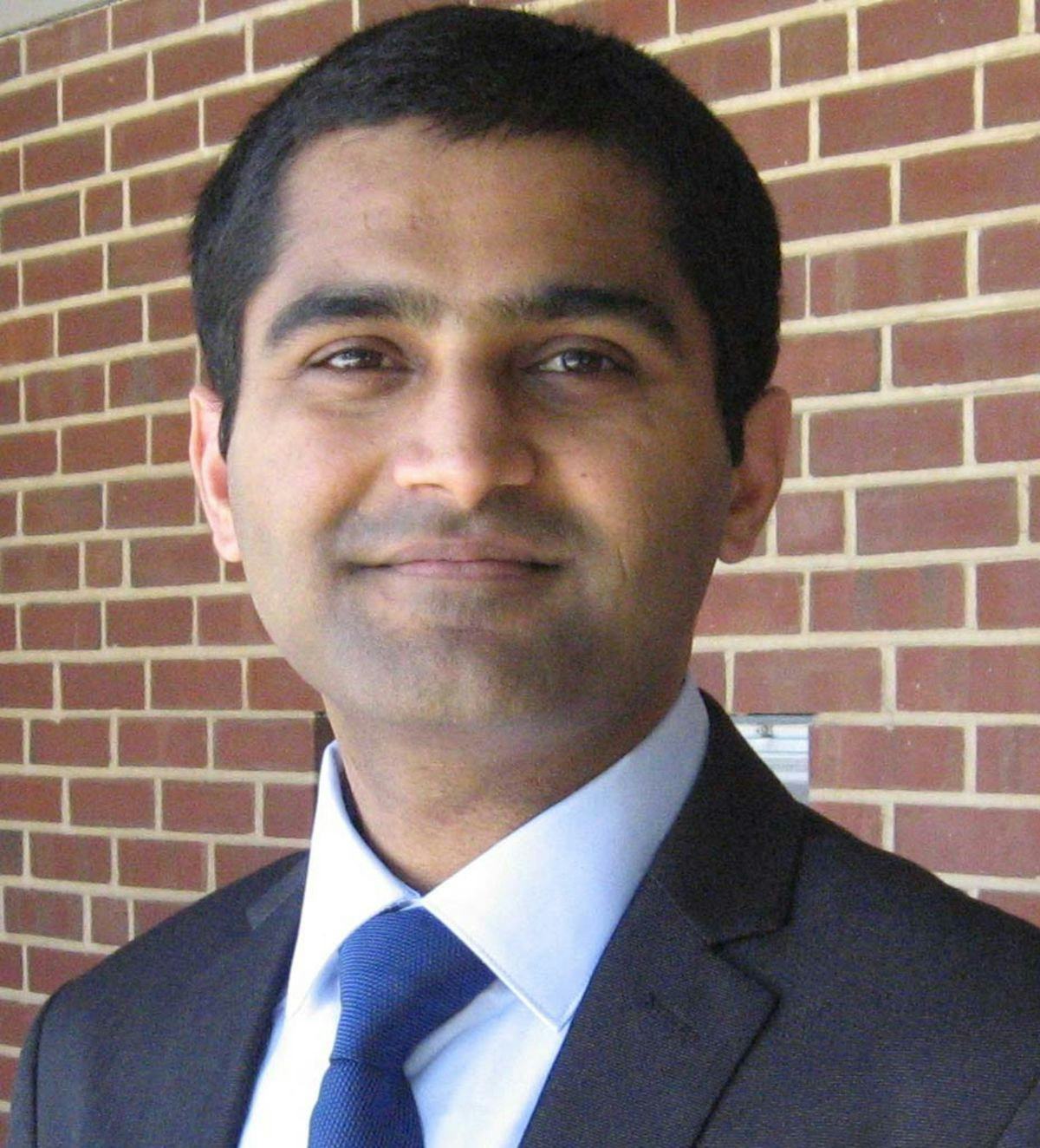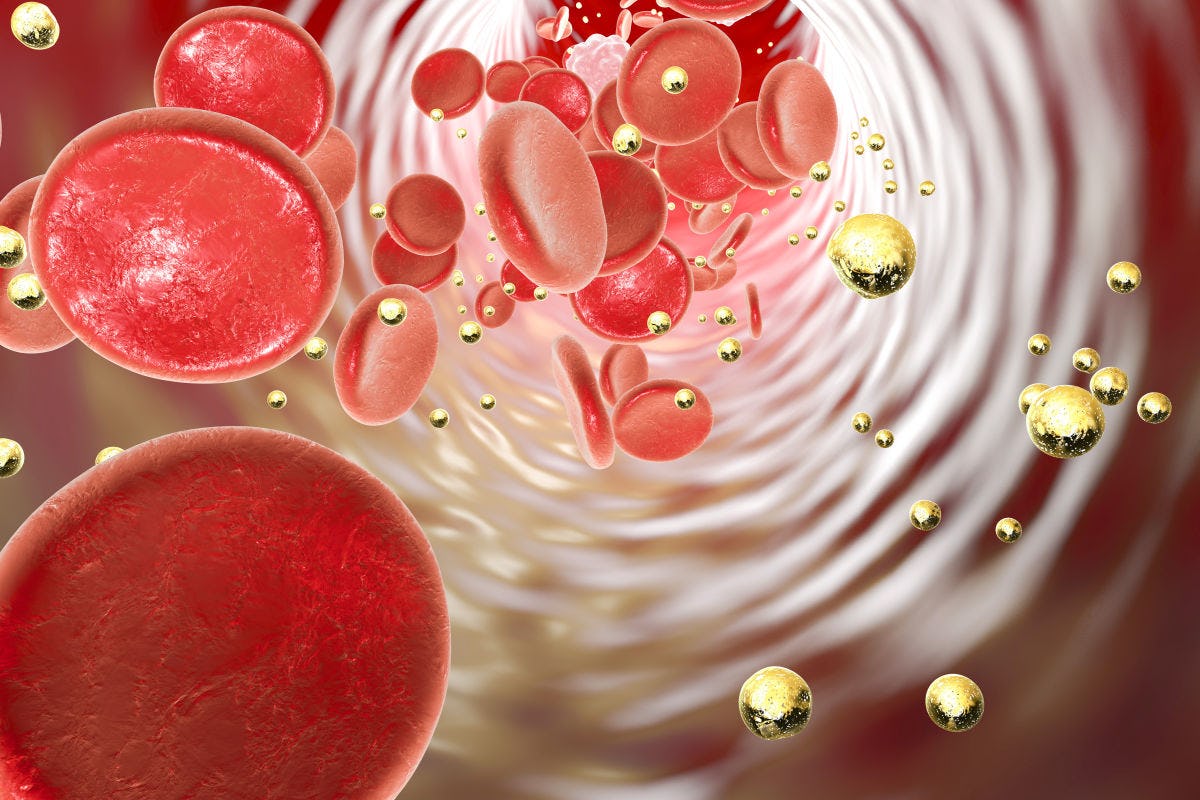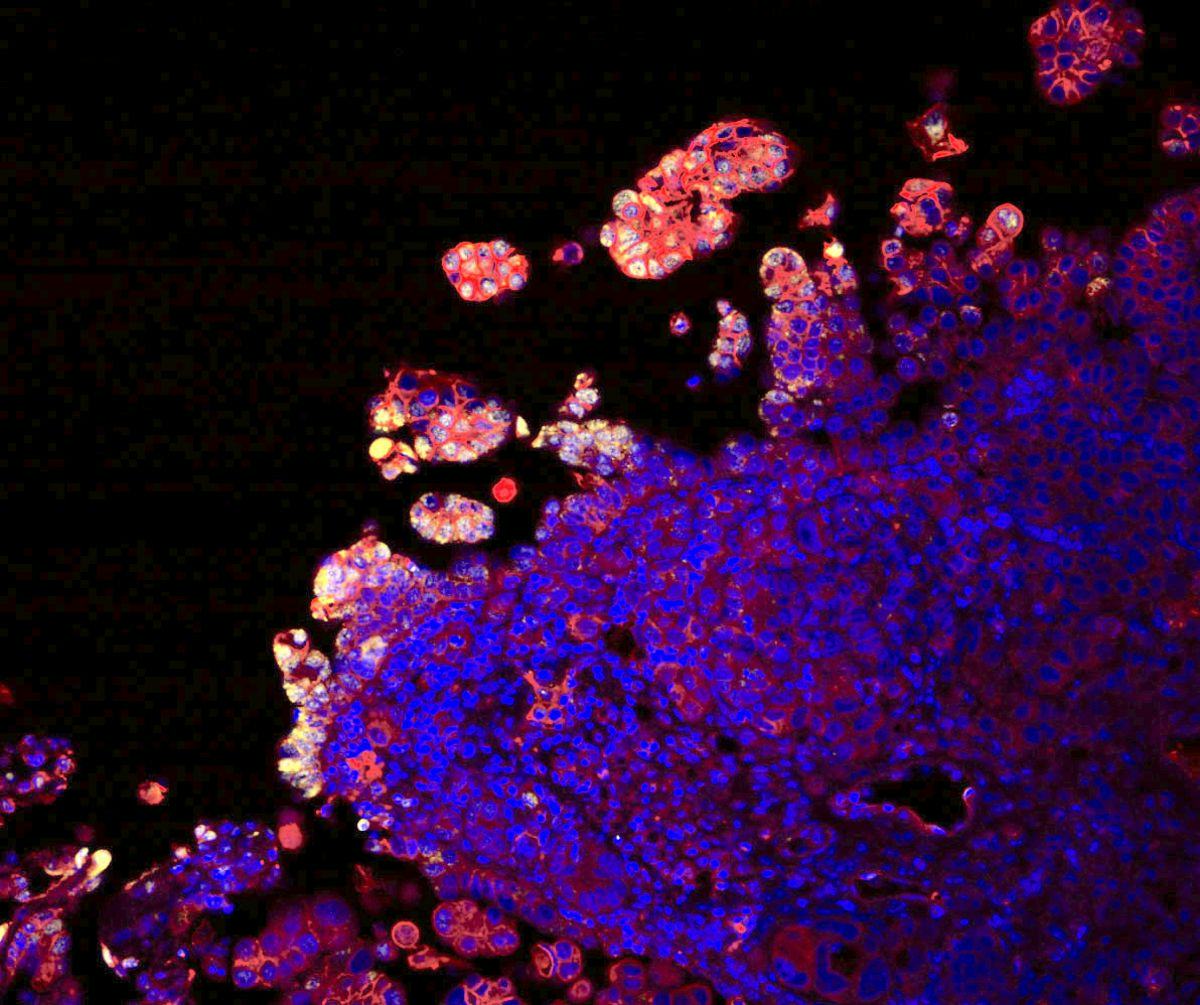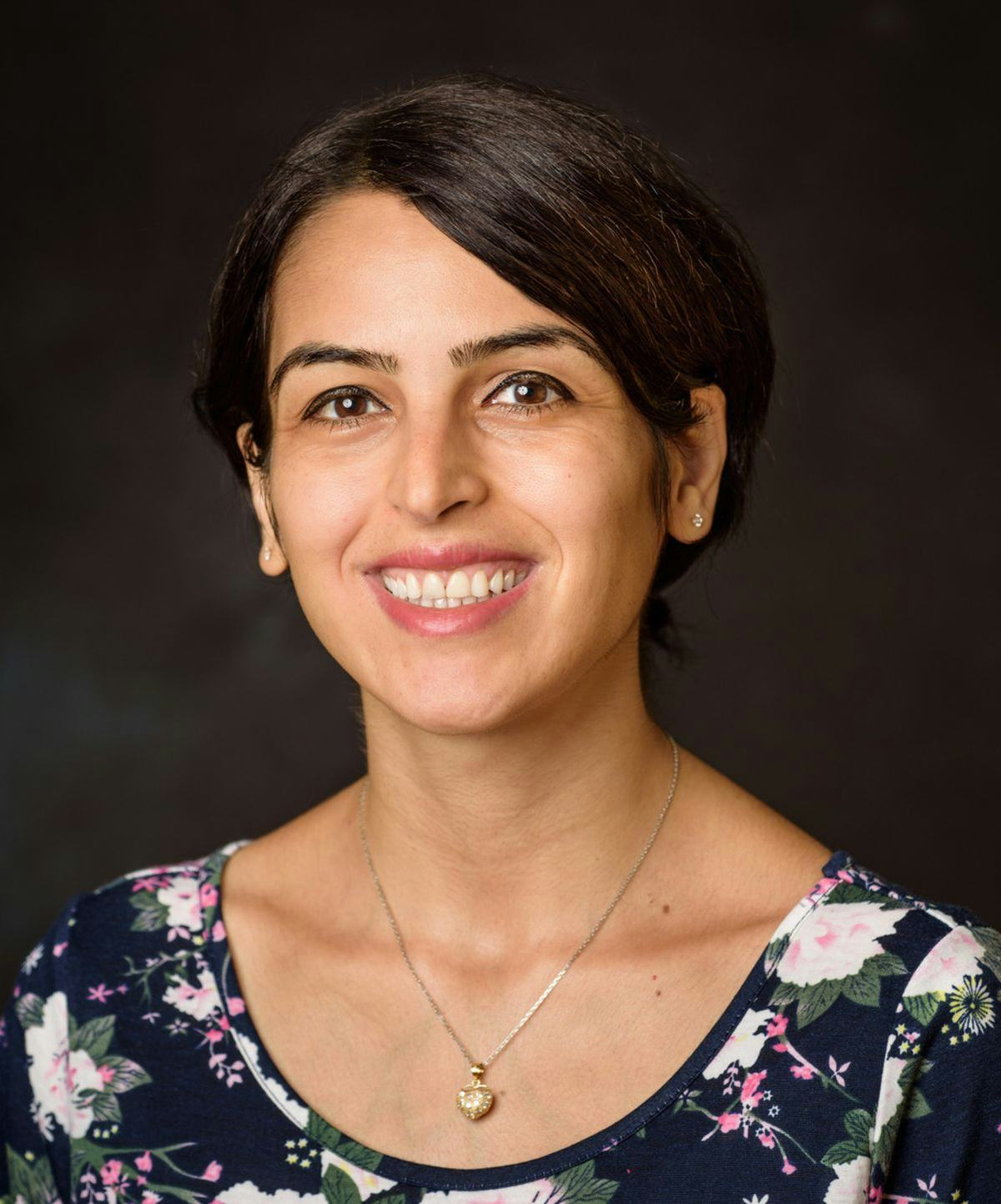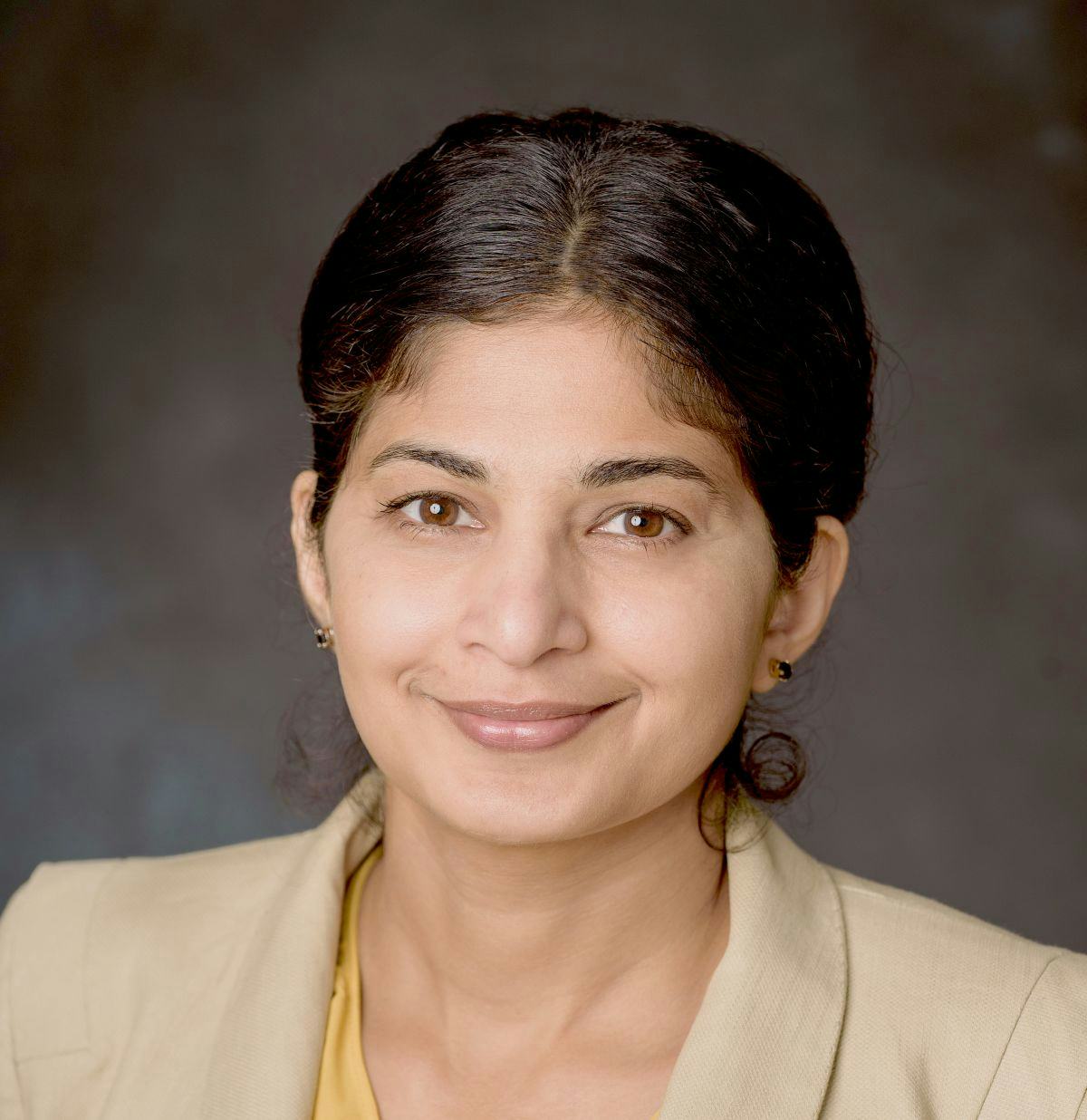How Stevens Research Works to Improve the Odds for Breast Cancer (and Other Cancer) Patients
The university's collaborations with Sloan Kettering, Penn and other major players take aim at breast cancer — and other deadly cancers
One in eight U.S. women are diagnosed with a form of breast cancer, and an estimated 2 million or more new cases are diagnosed worldwide each year. Although survival rates have climbed over the past quarter-century, metastatic breast cancers still cause death within just three years of detection in half of all women diagnosed.
But Stevens faculty and student researchers, working with collaborators nationwide, hope to improve those odds and pave the way for more effective medications, treatments and therapies of breast cancer — and many other deadly cancers as well.
Potential new cancer medicines
One team, headed by chemistry professor Abhishek Sharma, has unlocked a new class of substances that appear highly promising for breast cancer treatment — particularly for those with drug-resistant or dangerously metastatic (spreading) stages of the disease. In collaboration with Sloan Kettering Memorial Cancer Center, the Stevens team tried an innovative attack, attaching a core compound to a series of experimental side-chains.
After testing more than a dozen variations on cancer cells in the lab, the group found that many of these new compounds did indeed inhibit proliferation of tumor cells.
"These drug candidates are structurally distinct from all the current drugs," says Sharma, whose work has been supported by the U.S. Department of Defense (DoD) and the Susan G. Komen Breast Cancer Foundation. Sharma's lab is also developing molecular agents that use other novel mechanisms to inhibit the estrogen receptor-mediated breast cancer proliferation.
In a complimentary project, Sharma's lab received $1.55 million grant from the National Institutes of Health (NIH) to develop approaches for opening up access to new types of medicinally important molecules.
Sharma’s team also recently initiated a new program aimed at blocking the cancer-causing activity of other proteins implicated in drug-resistant breast cancers. Proteins known as cyclin-dependent kinases 4 and 6 (CDK4/6), for instance, have emerged as major new therapeutic targets for the treatment of breast cancers.
CDK4/6-inhibiting medications such as Palbociclib and Ribociclib have been approved by the FDA for use in a combination therapy to treat estrogen receptor-positive, HER2-negative advanced breast cancer. However, patients often develop resistance to those drugs due to kinase reactivation and decreased binding affinity.
To overcome this challenge, Sharma’s lab has developed novel bifunctional PROTACs (proteolysis targeting chimeras) for targeted degradation and breakdown of the CDK 4/6’s. Working in collaboration with the prestigious Memorial Sloan Kettering Cancer Center (MSKCC), some of these molecules have been found to be potent and selective degraders of CDK 6, inhibiting the phosphorylation of tumor-suppressing retinoblastoma protein.
Patent applications have been filed, and several of the most promising molecules are now being tested in pre-clinical studies at MSKCC.
Breast tumor metastasis, cancer-drug delivery
Stevens researcher and Semcer Center for Healthcare Innovation director Hongjun Wang and his team are shedding new light on the conditions that affect the growth and spread of breast cancer tumors. Wang's team, for instance, has confirmed a hypothesis that stiffer regions of tissue surrounding a breast cancer tumor appear to speed the growth of tumor cells — at first. That finding wasn't surprising, because previous studies indicated it might be true.
However, the experimental cells' rapid growth rate was slowed (and even stopped completely on the very stiffest material). That's a major new insight, and it could point the way to medicines that stiffen the region around tumors intentionally to slow or even halt cancer's growth.
"This insight could be applicable not only to breast cancer, but also to any solid-tumor cancer, such as prostate or pancreatic cancer, as well," notes Wang.
Wang's lab has also produced exciting recent findings on the use of gold-nanoparticle packages to deliver cancer medications precisely to tumors.
Working with clinicians in the Hackensack Meridian Health (HMH) system, his team engineered an extremely stable particle that only gives up its payload once it has bound to specific receptors on the surfaces of lymphoma tumors. In recently completed animal studies, the group found those tumors responded markedly better to the method than it did to non-targeted treatments.
Next the team will work to develop more sophisticated pore sealants that rely upon antibodies to target various other, more difficult-to-treat tumors effectively as well. The work was reported in ACS Applied Materials & Interfaces [2023, 15, 5, 6312–6325].
New approaches to ovarian cancer
Stevens biology professor Marcin Iwanicki, a former postdoctoral research fellow at Harvard Medical School, studies ovarian cancer — in particular, the genetic mutations and other biochemical factors that lead to dissemination of ovarian cancer tumors.
In his quest to learn why ovarian tumors break off and thrive in the body and study how they might be suppressed, Iwanicki deploys techniques including tissue bioengineering and gene editing technologies.
He collaborates with the University of Pennsylvania, the University of Michigan and Fox Chase Center Cancer on the work, and receives support from the National Cancer Institute (NCI), the Kaleidoscope of Hope Ovarian Cancer Research Foundation and other healthcare industry partners, as well.
Understanding cancers on the cellular level
Stevens biomedical engineer Yu Gan works in close partnership with the German Cancer Research Cancer (DKFZ) — Germany’s national cancer research institute — to investigate the basic mechanisms of cancer at the cellular level, leveraging the tools of artificial intelligence.
“Scientists have a lot of medical data on cancer now, but we are all still working to solve the big-data issues,” says Gan. “In our lab, we process confocal image data from tumors and try to extract the actual dynamics of cells.”
The effort, initially privately funded, is currently seeking additional support; meanwhile, his student team is helping build new software that will enable DKFZ to analyze libraries of images of tumor cells. Gan also recently co-authored a paper in the leading cancer journal Cancer Cell [2023: 1, 1–12].
Probing deadly blood, bone cancers
Another collaborator with the Hackensack Meridian Health system, Chemistry and Chemical Biology Department Chair Woo Lee and his teams create biologically based devices and microenvironments upon which cancer processes may be simulated and examined.
The work has potential therapeutic implications for multiple myeloma (MM), an incurable blood cancer, as well as for bone and other cancers.
Lee also recently received additional funding support from the National Institutes of Health to collaborate with HMH's Center for Discovery and Innovation research center on a project to identify and characterize functional non-coding mutations in MM.
Earlier, less invasive skin-cancer diagnoses
Stevens researcher Negar Ebadi works on novel imaging systems to non-invasively detect potential skin cancers before it’s too late.
Using millimeter-wave technologies (the same kind used to scan your luggage at the airport security gate), Ebadi and her graduate-student collaborators are developing a low-cost handheld device that could cut the need for unnecessary skin biopsies in half.
The technology works because healthy tissue reflects the millimeter-wave rays differently than cancerous tissue. Ebadi’s team created algorithms that fuse signals captured by multiple antennas into a single, ultrahigh-bandwidth image, reducing noise and capturing high-resolution imagery of even the tiniest mole or blemish.
Since the rays harmlessly penetrate about 2 millimeters into human skin, the system also provides a clear 3D map of skin lesions and their boundaries, helping enable more surgically precise removal when that becomes medically necessary.
Working with Amir Mirbeik Ph.D. ’18, Ebadi has performed experimental tests on small groups of patients in clinical settings with an early prototype scanning device. The system identified cancerous tissue with 97% sensitivity and 98% specificity, a rate competitive with even the best hospital-grade diagnostic tools. The was published in 2022 in Scientific Reports.
“There are other advanced imaging technologies that can detect skin cancers, but they’re big, expensive machines that aren’t available in the clinic,” points out Ebadi.
Next she will work to miniaturize the technology further, make components more cost-effective and work to commercialize it broadly.
Novel colon cancer research
Researcher Ansu Perekatt studies the molecular biology of colon cancer, which afflicts nearly 2 million new patients worldwide each year and becomes particularly dangerous when it metastasizes and spreads to other regions of the body.
Why do colon cancers occur, persist and sometimes relapse? To try to understand the answers to these questions, Perekatt is investigating the mechanisms of cell fate reversal that cause tumors.
She also has received grant support from the National Cancer Institute: a $486,000 NCI award assisted Perekatt in the transition of her prior colon cancer research to Stevens as she continues exploring its mechanisms in her Stevens lab, using in vivo mouse models and ex vivo intestinal organoid cultures.
To learn more about Stevens' research in biomedicine, healthcare and related areas, visit www.stevens.edu/CHI.

